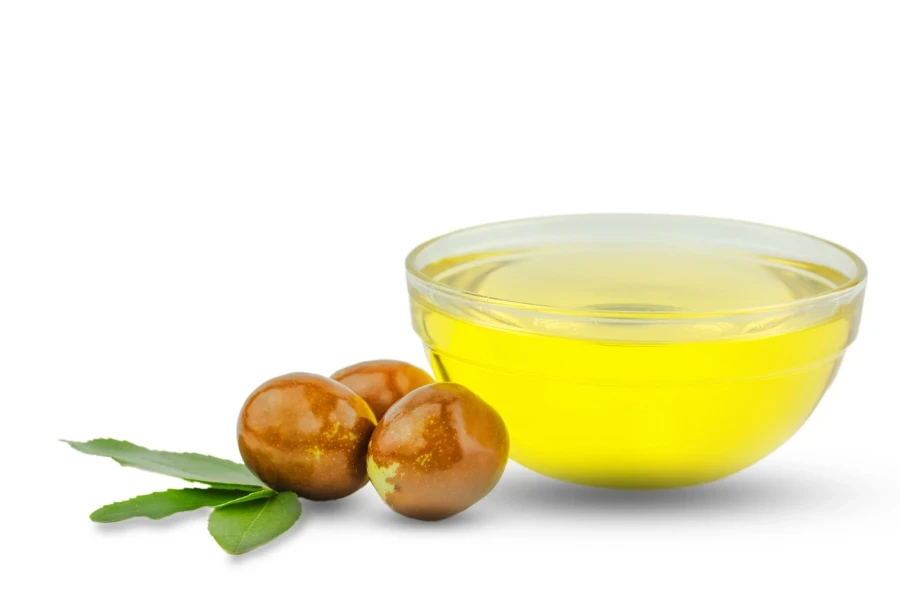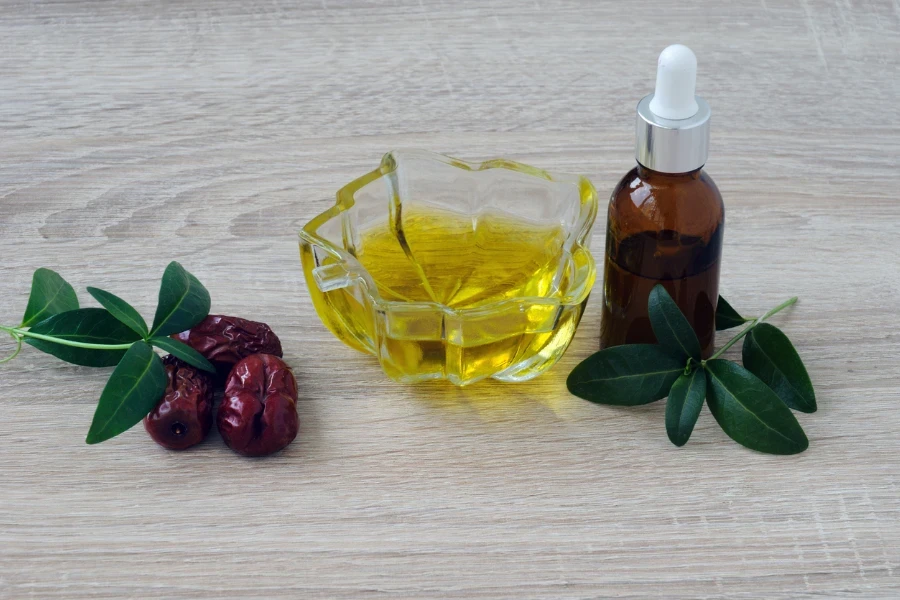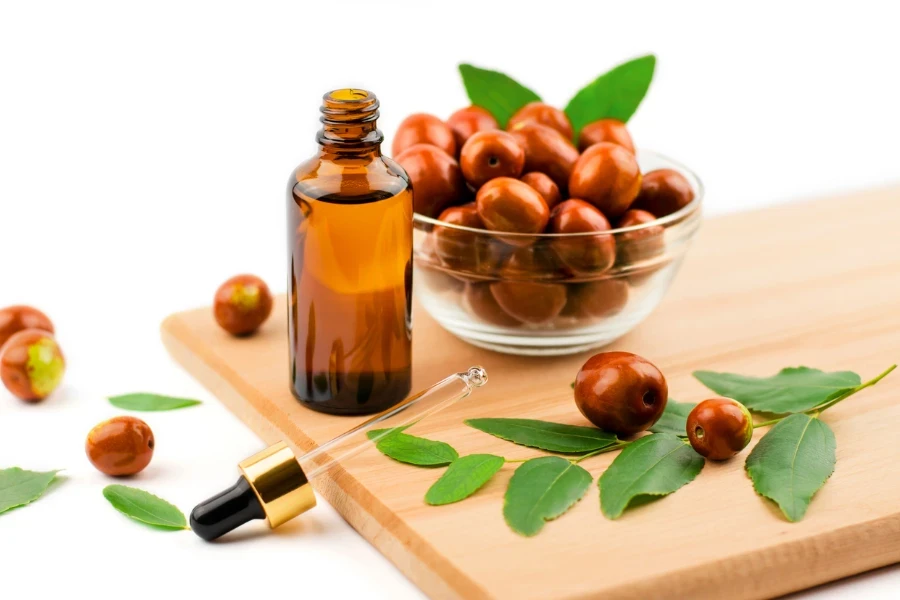Jojoba oil, derived from the seed of the Simmondsia chinensis plant, has emerged as a cornerstone in the realms of beauty and personal care. Its unique composition, closely resembling human sebum, makes it a versatile and highly beneficial addition to various skincare and haircare routines. This article delves into the essential aspects of jojoba oil, exploring its benefits, applications, compatibility with different skin types, and tips for incorporating it into your daily regimen.
Table of Contents:
– Understanding the composition of jojoba oil
– The top benefits of incorporating jojoba oil into your routine
– How to use jojoba oil for different skin types
– Integrating jojoba oil into your daily beauty regimen
– Tips for selecting and storing jojoba oil
Understanding the composition of jojoba oil

Jojoba oil is unique because its molecular structure closely mirrors that of human sebum, making it exceptionally compatible with our skin. It is rich in vitamins E and B, as well as minerals like chromium, copper, and zinc, which nourish and protect the skin. This oil is also loaded with antioxidants and fatty acids, which play a critical role in skin repair and damage control.
The science behind jojoba oil’s effectiveness lies in its ability to deeply penetrate the skin, providing hydration without leaving an oily residue. This makes it an excellent moisturizer that can help to balance the skin’s natural oil production. Moreover, its antibacterial properties make it beneficial for acne-prone skin, helping to prevent breakouts by controlling bacteria growth.
Understanding the composition of jojoba oil is crucial for appreciating its versatility and efficacy in personal care products. Its unique blend of nutrients and compatibility with human skin underscores its value in enhancing beauty routines across different skin types.
The top benefits of incorporating jojoba oil into your routine

Jojoba oil offers a plethora of benefits for both skin and hair, making it a must-have in your beauty arsenal. Firstly, its moisturizing properties are unparalleled, providing long-lasting hydration without clogging pores. This makes it an excellent choice for both dry and oily skin types.
For those struggling with acne, jojoba oil can be a game-changer. Its antimicrobial properties help to reduce acne-causing bacteria, while its non-comedogenic nature prevents the buildup of excess oil. Additionally, its soothing effect can help to calm inflammation and reduce redness associated with breakouts.
Hair care is another area where jojoba oil shines. It can be used as a scalp treatment to balance oil production, preventing dandruff and promoting healthy hair growth. Its conditioning properties also make it ideal for taming frizz and adding shine to your locks.
How to use jojoba oil for different skin types

Jojoba oil’s adaptability to different skin types is one of its most compelling attributes. For dry skin, it acts as an intensive moisturizer, sealing in hydration and preventing flakiness. A few drops can be applied directly to the skin or mixed with your favorite cream for an extra moisture boost.
Oily and acne-prone skin can also benefit from jojoba oil. Despite being an oil, it can help regulate sebum production, reducing the likelihood of breakouts. Applying a small amount to the face can help maintain a balance, ensuring the skin remains hydrated without becoming greasy.
Sensitive skin types will find jojoba oil to be a gentle and soothing option. Its anti-inflammatory properties can help reduce redness and irritation, making it a safe choice for those with easily upset skin. Mixing it with a calming essential oil like lavender can enhance its soothing effects.
Integrating jojoba oil into your daily beauty regimen

Incorporating jojoba oil into your daily beauty routine can be simple and effective. As a facial moisturizer, it can be applied in the morning or evening after cleansing. It’s also an excellent makeup remover, capable of dissolving even waterproof makeup while nourishing the skin.
For hair care, jojoba oil can be used as a pre-shampoo treatment to add moisture or as a leave-in conditioner to smooth frizz and add shine. A few drops can be applied to the ends of damp hair or used to massage the scalp, promoting healthy hair growth.
Additionally, jojoba oil can be mixed with other natural ingredients to create DIY beauty treatments. Whether it’s a face mask, scrub, or body lotion, jojoba oil’s versatility makes it an ideal base for homemade personal care products.
Tips for selecting and storing jojoba oil

When selecting jojoba oil, look for high-quality, cold-pressed, unrefined oil. This ensures that the oil retains its nutrients and beneficial properties. Organic options are also preferable, as they are free from pesticides and other harmful chemicals.
Storing jojoba oil correctly is essential for maintaining its efficacy. Keep it in a cool, dark place, away from direct sunlight. Properly stored jojoba oil can have a long shelf life, but it’s important to check for any changes in smell or color, which could indicate spoilage.
Conclusion:
Jojoba oil is a versatile and beneficial addition to any beauty and personal care routine. Its unique composition, compatible with human skin, offers numerous benefits for skin and hair health. By understanding how to use and integrate jojoba oil into your regimen, you can unlock its full potential, achieving a balanced, hydrated, and radiant complexion.




